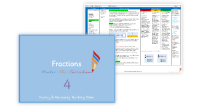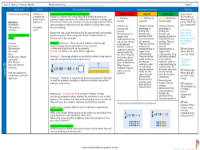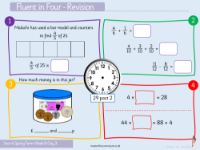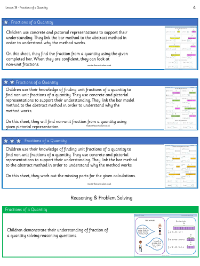Fractions - Fractions of a quantity - Presentation
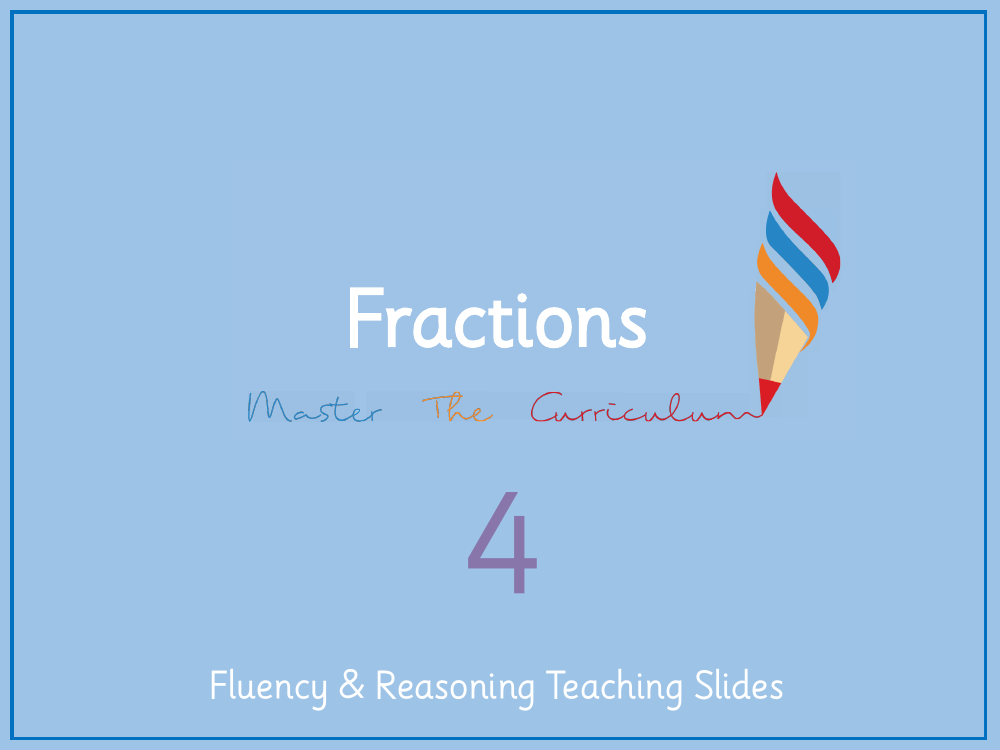
Maths Resource Description
This lesson is centred on reinforcing the understanding of how to find fractions of a quantity. It begins by encouraging students to discuss methods previously learned for calculating fractions of quantities. The first activity provides a practical application, where students use counters to represent a given number of oranges—18 in total—and then calculate various fractions of this quantity. For example, they determine what one-sixth, one-third, and one-half of 18 oranges are, with the answers being 3, 6, and 9 oranges respectively. The activity is designed to help students visualise the concept of fractions in a tangible way and to recognise the relationships between different fractions of the same whole.
Moving on, the second activity introduces the bar model as a visual aid to represent and calculate fractions of larger quantities, such as finding one-eighth of 48 and 24. The lesson provides clear examples, demonstrating that one-eighth of 48 is 6, and so on, reinforcing the method of dividing the whole by the denominator and then multiplying by the numerator to find the specified fraction of the quantity. In the third activity, students apply their skills to real-life scenarios involving fractions of quantities, such as calculating how much water is left after a spill or how much chocolate someone has eaten. The reasoning sections challenge students to evaluate true or false statements about fraction calculations, promoting a deeper understanding of the process. Finally, independent work tasks encourage students to use bar models to solve fraction problems and to critically assess the accuracy of given statements, fostering analytical thinking and problem-solving skills.

